What are Pickling Cucumbers called? Pickling Cucumbers are essentially small varieties of Cucumbers that have been pickled to perfection. Unlike regular eating, Pickling Cucumbers have bumpy, spiny skins that appear distinct. They also tend to be shorter and thicker than slicing Cucumbers. Can you use any type of Cucumber for pickles? While any type of Cucumber can be used for Pickling, certain varieties work best for achieving that perfect crunch and flavor. Pickling Cucumbers have some distinct characteristics that make them ideal for pickle-making.
Is There a Difference Between Regular and Pickled Cucumbers?
Pickling Cucumbers tend to be shorter and bigger around than their slicing counterparts. This is because they are specifically bred for Pickling purposes, where size matters in efficiently fitting into jars or containers. One notable distinction between the two is the thickness of their skins. Pickling Cucumbers have thinner skins compared to regular Cucumbers.
This allows them to absorb the brine flavors more easily during Pickling. Thinner skins also contribute to a better texture in the final product. By selecting Pickling Cucumbers with thinner skins and black spines, you can ensure that your homemade pickles taste great and look visually appealing when served or gifted.
19 Best Cucumbers for Pickling
Armenian Cucumber
Regarding Cucumbers, the Armenian variety stands out with its impressive length. These Cucumbers can grow up to two feet long, making them a unique addition to your Pickling endeavors. The Armenian Cucumber is the perfect option if you’re looking for a long and refreshing Cucumber.
In case you missed it: How Do You Grow Cucumbers in a Greenhouse: A Step-by-Step Guide for Beginners
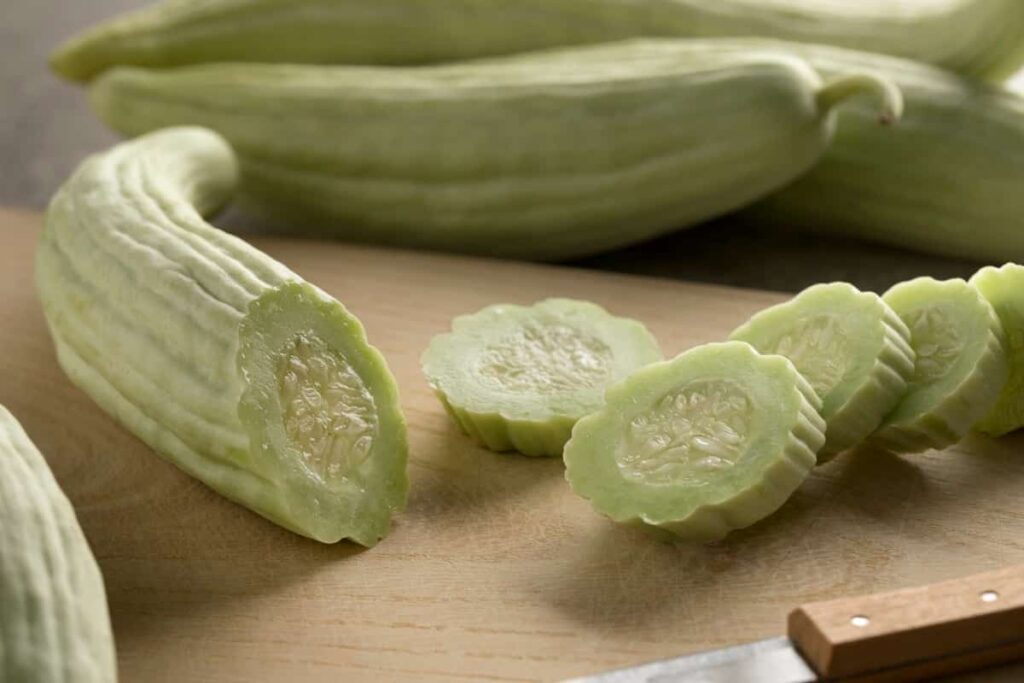
These Cucumbers are typically around 18 inches long, ideal for pickles, salads, and other purposes. The versatility of this Cucumber makes it perfect for Pickling enthusiasts. Its mild flavor pairs well with various brines and spices, absorbing all those mouthwatering flavors during Pickling.
Fanfare Cucumber
Fanfare Cucumber is a popular variety for Pickling enthusiasts. This Cucumber is known for its crisp texture and excellent flavor, making it a perfect choice for homemade pickles. With its vibrant green color and smooth skin, the Fanfare Cucumber adds visual appeal to any jar of pickles. These Cucumbers can grow up to 8 inches long, providing ample slices for your Pickling needs. Their slender shape makes them easy to pack into jars without too much space.
It offers a refreshing crunch with just the right balance of sweetness and tanginess. The flavor profile complements pickle recipes, from classic dill to spicy bread and butter. In addition to their culinary benefits, growing Fanfare Cucumbers can be a rewarding experience. How do you grow fanfare Cucumbers? They are relatively easy to cultivate and thrive in warm climates. With proper care and regular watering, you’ll soon have an abundance of fresh Cucumbers ready for Pickling.
Picklebush Cucumber
This variety is known for its compact size and high yield, perfect for small gardens or containers. The Picklebush Cucumber produces crisp and flavorful Cucumbers that are ideal for Pickling. They have a slightly sweet taste with just enough tanginess, making them a delicious addition to any pickle recipe. How tall do picklebush Cucumbers grow? These Cucumbers only grow to about 4 to 5 inches long, making them an excellent choice for Pickling.
What sets this Cucumber apart is its bushy growth habit, which means it doesn’t require extensive trellising or support like other Cucumber varieties. It’s a low-maintenance plant that thrives in sunny and partially shaded areas. Not only does the Picklebush Cucumber produce an abundance of Cucumbers, but it also matures quickly. How long do Picklebush Cucumbers take to grow? You can expect to start harvesting your Picklebush Cucumbers within 45-53 days after planting.
Bush Pickle Cucumber
Bush Pickle Cucumber is a compact and bushy variety perfect for small gardens or container gardening. Its short vines take up less space than traditional Cucumber plants, making it an ideal choice for urban gardeners or those with limited growing space. This Cucumber variety produces crisp and crunchy fruits perfectly suited for Pickling. Bush Pickle Cucumbers mature quickly. Within 50-55 days, you can start harvesting Pickling Cucumbers from this plant.
Sweet Success Cucumber
Sweet Success Cucumber is a delightful variety that lives up to its name. Its sweet flavor makes it the perfect Cucumber for Pickling. These Cucumbers are known for their smaller size, making them ideal for fitting into jars. Plus, they have thin skins, which means less peeling and more crunch in your pickles. They are easy to grow in your garden. They thrive in warm climates with plenty of sunlight and well-drained soil.
Boston Pickling Cucumber
The Boston Pickling Cucumber is a classic choice for pickle enthusiasts. One of the standout features of the Boston Pickling Cucumber is its size. It typically grows to be around 5-6 inches long, making it ideal for packing into jars or slicing up into spears. Its compact shape ensures that every bite delivers a satisfying crunch.
In case you missed it: How to Grow Cucumber Plants Faster: Best Tips to Increase Flowering, Fruiting, and Production Yield
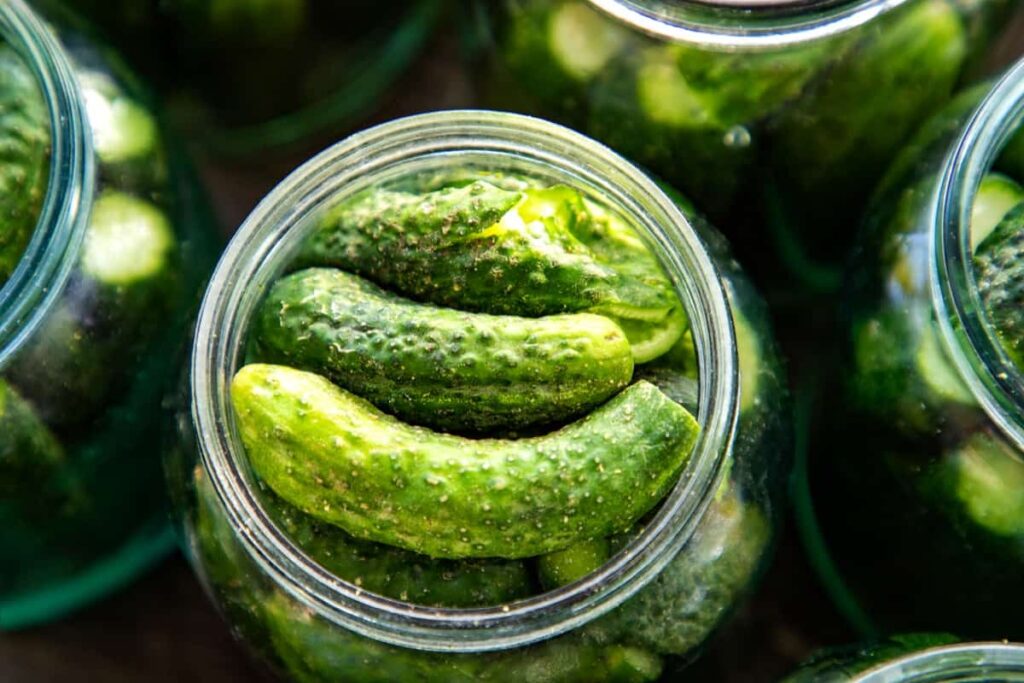
Not only does this Cucumber excel in taste and texture, but it also thrives in various growing conditions. Whether you have a small backyard garden or prefer container gardening on your balcony, the Boston Pickling Cucumber can adapt and flourish. When harvesting these Cucumbers, it’s best to pick them when they are still young and firm. This will ensure they retain their crispness even after being fermented.
Calypso Cucumber
Calypso Cucumbers are a delightful variety to grow in your garden if you’re a fan of Pickling. These Cucumbers have a unique appearance with their light green skin and dark green stripes, resembling the patterns on a calypso dancer’s costume. The vibrant colors make them visually appealing and add beauty to your homemade pickles. They are typically small to medium-sized, perfect for Pickling whole or slicing into spears. Their crunchiness also adds to their appeal, giving your pickles that satisfying bite.
Calypso Cucumbers have a mild flavor that pairs well with Pickling spices and brines. Whether you prefer traditional dill pickles or want to experiment with flavors like sweet and spicy, these Cucumbers will take on the flavors beautifully. Another advantage of growing Calypso Cucumbers is their productivity. They produce abundant fruits throughout the growing season, ensuring you have plenty for all your pickle-making endeavors or even enjoying fresh salads.
Carolina Pickling Cucumber
Carolina Pickling Cucumbers are a popular choice for homemade pickles due to their crisp texture and flavor. These Cucumbers, native to the Carolinas, are known for their versatility in Pickling recipes. The Carolina Pickling Cucumber is an heirloom variety that produces medium-sized fruits with a length of about 5-7 inches. They have a vibrant green color and smooth skin, making them visually appealing in pickled dishes.
One of the key characteristics of Carolina Pickling Cucumbers is their crunchy texture. When brined or fermented, these Cucumbers retain their firmness and provide a satisfying crunch with every bite. This makes them ideal for pickles that require some extra snap. In addition to their texture, Carolina Pickling Cucumbers offer a delightful flavor profile.
Salt and Pepper Cucumber
Salt and Pepper Cucumber is a unique variety that adds a twist to your Pickling adventures. The Salt and Pepper Cucumber gets its name from the distinctive coloration on its skin. Salt and Pepper Cucumbers are easy to grow. It thrives in containers and traditional garden beds, making it suitable for any gardener with limited space or an expansive backyard.
Lemon Cucumber
Lemon Cucumbers are a delightful and unique variety to grow in your garden for Pickling. These vibrant yellow Cucumbers may look like lemons, but don’t be fooled by their appearance, and they have a refreshing Cucumber taste with a hint of citrusy flavor. They can be eaten fresh in salads, but they truly shine when pickled.
In case you missed it: How to Start Cucumber Farming/Growing in Philippines: Check How this Guide Helps Beginners
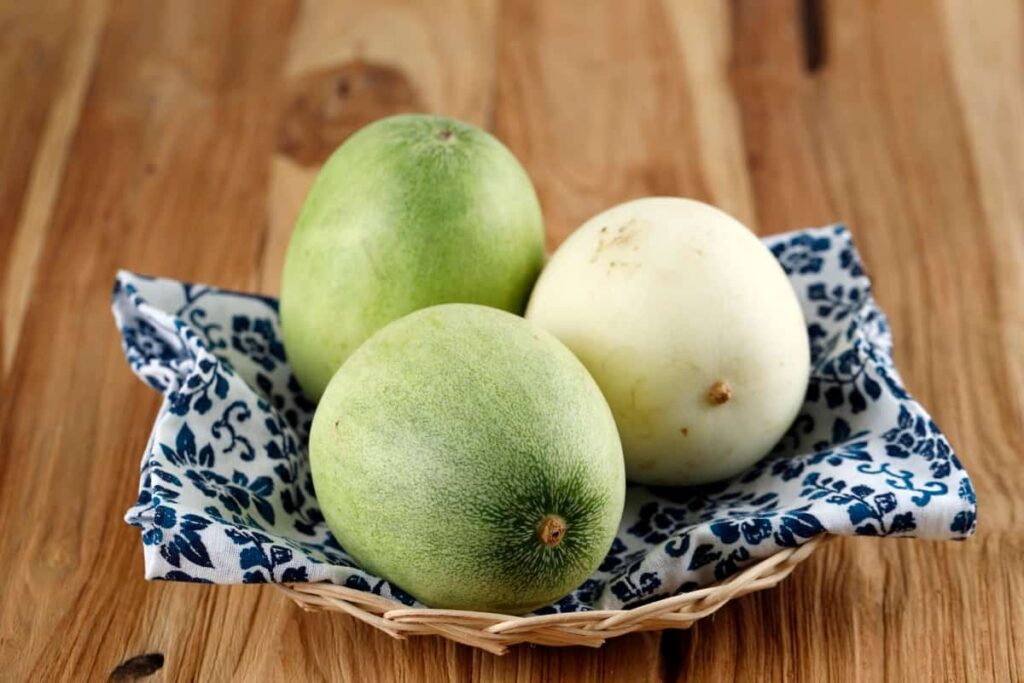
When it comes to texture, lemon Cucumbers are top-notch. They have thin skins that add the right amount of crispness to each bite. Their small size makes them perfect for snacking on or adding to appetizer platters. In terms of growing lemon Cucumbers, they thrive in warm climates and require full sun exposure. They also appreciate well-drained soil and regular watering to keep them hydrated.
Northern Pickling Cucumber
The Northern Pickling Cucumber is a fantastic choice for those looking to grow Cucumbers for Pickling. This variety is known for its crisp texture and excellent flavor, making it the perfect Cucumber for homemade pickles. One of the standout features of the Northern Pickling Cucumber is its size. These Cucumbers are typically on the smaller side, which makes them ideal for canning whole or slicing into spears.
Their compact size also means they fit perfectly in jars, maximizing your pickle production. In terms of appearance, these Cucumbers have a vibrant green color and smooth skin with minimal spines. This makes them visually appealing when jarred up with your favorite brine mixture. Whether you prefer dill or sweet pickles, this Cucumber variety holds up well during fermentation and retains its delicious qualities.
Parisian Pickling Cucumber
Parisian Pickling Cucumber is a delightful variety that adds a touch of elegance to your Pickling endeavors. Its small size and delicate flavor make it perfect for creating dainty and flavorful pickles. These round Cucumbers have vibrant green skin, making them visually appealing. The compact size of these Cucumbers makes them ideal for smaller garden spaces.
They don’t require much room to grow, so you can still enjoy growing your Pickling Cucumbers even if you have limited space. When harvesting Parisian Pickling Cucumbers, pick them when they are young and tender for the best flavor and texture. This variety matures quickly, so keep an eye on your plants to ensure you harvest them at their peak.
National Pickling Cucumber
This Cucumber variety is specifically bred for Pickling, making it the perfect addition to your garden if you embark on a homemade Pickling adventure. Its size and shape set National Pickling Cucumber apart from other Cucumbers. It’s shorter and thicker than slicing Cucumbers, with a bumpy texture that gives your pickles an extra crunch. Plus, its skin is thin enough to absorb the flavors of the brine or vinegar solution easily. These plants produce an abundant harvest of Cucumbers, ensuring you’ll have plenty to pickle and enjoy throughout the season.
Kirby Cucumber
Kirby Cucumbers are popular for those who want to make delicious homemade pickles. What sets Kirby Cucumbers apart is their size and texture. They are shorter and thicker than regular slicing Cucumbers, making them ideal for Pickling. The smaller size allows them to absorb the flavors more evenly, resulting in tangy and flavorful pickles. Kirby Cucumbers have thin skins with black spines.
In case you missed it: Best Practices to Grow Cucumber at Home: Check How this Guide Helps Beginners
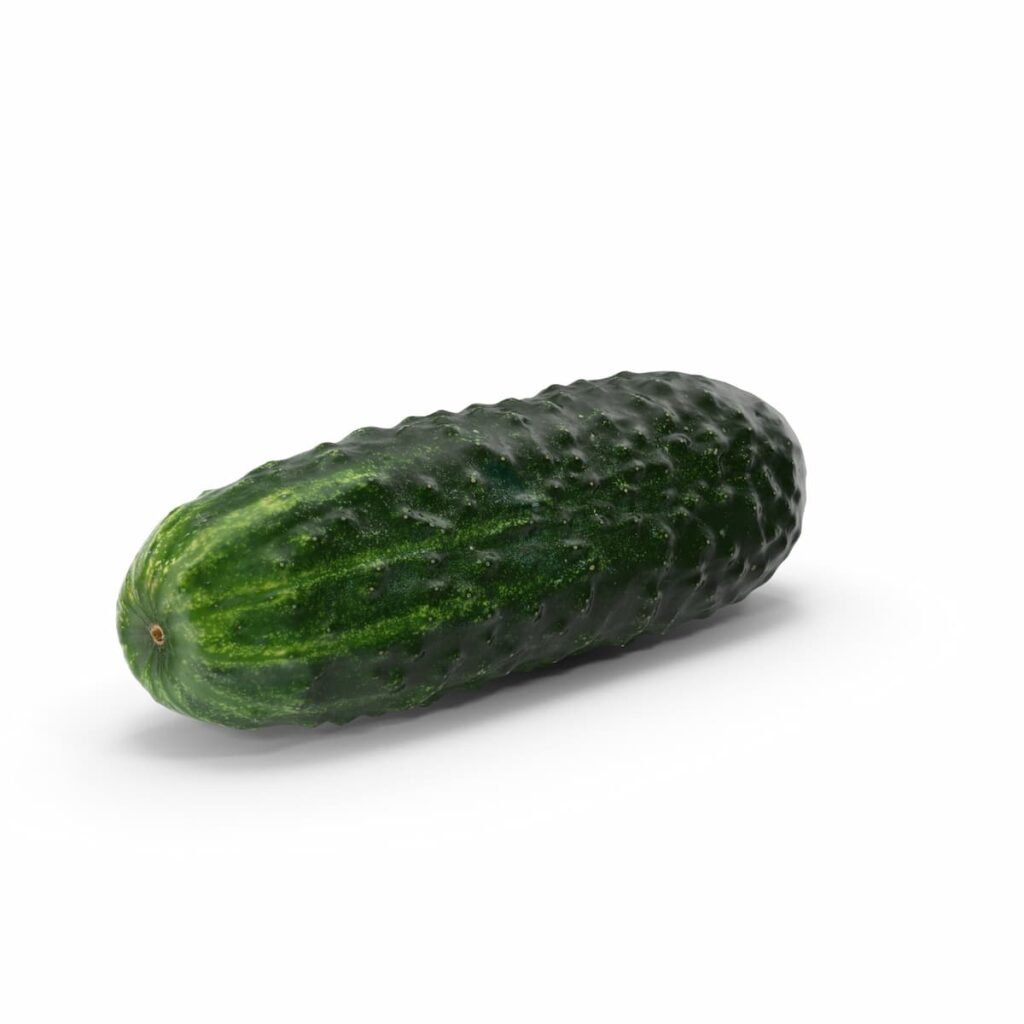
This adds visual appeal to your pickled creations and ensures every bite has a satisfying crunch. Whether you prefer sweet bread-and-butter pickles or zesty dill pickles, Kirby Cucumbers can handle it all. Their versatility makes them a favorite among home gardeners and pickle enthusiasts alike.
Regal Cucumber
Regal Cucumber is a variety known for its regal appearance and delicious taste. These Cucumbers are popular among gardeners who want to grow their pickles. With its elongated shape and vibrant green color, the Regal Cucumber adds an elegant touch to any pickle jar. When pickled, these Cucumbers retain their crunchiness, making them perfect for adding that satisfying bite to your homemade pickles.
County Fair Cucumber
County Fair Cucumber is a delightful variety that will add taste to your Pickling adventures. These Cucumbers are known for their uniform shape and size, making them ideal for slicing into bite-sized pickle chips. You’ll appreciate their high yield potential when growing County Fair Cucumbers in your garden. These plants are prolific producers, ensuring you have plenty of Cucumbers for all your Pickling endeavors.
Persian Cucumber
The Persian Cucumber is a delightful variety that is perfect for Pickling. Its slender shape and crisp texture make it popular among pickle enthusiasts. With its thin skin and minimal seeds, the Persian Cucumber offers a refreshing crunch with every bite. One of the unique features of the Persian Cucumber is its mild flavor. It has a subtle sweetness that pairs well with various Pickling spices.
In case you missed it: 10 Best Companion Plants for Carrots: What Not to Plant With Carrots
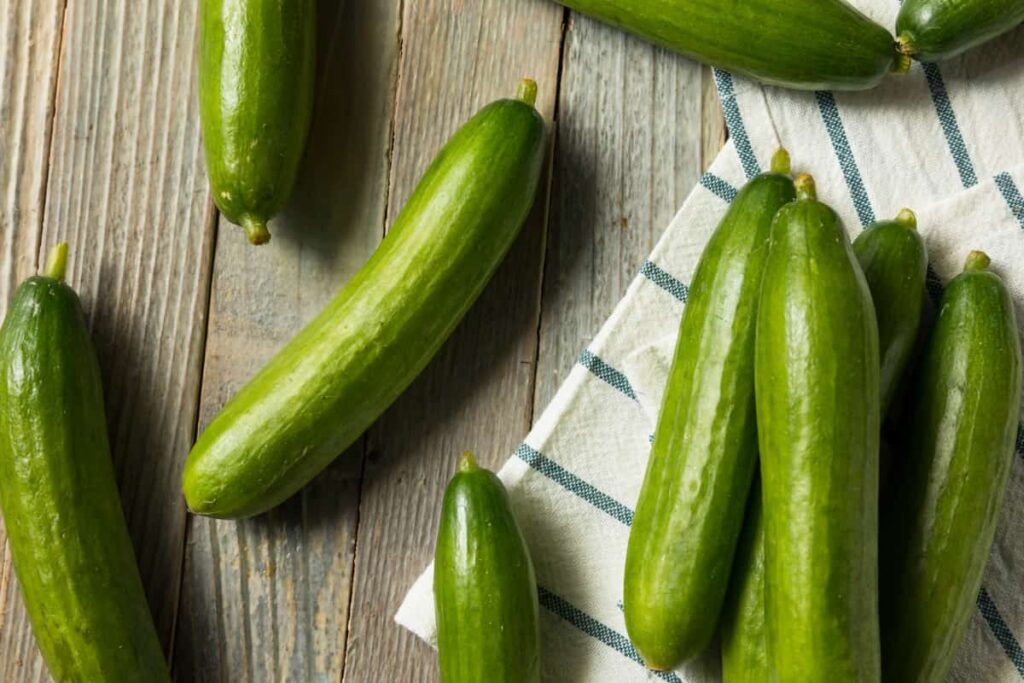
In addition to being great for Pickling, this Cucumber also shines in fresh salads. Its delicate flavor adds a refreshing element to any dish. Its small size makes it convenient for slicing and incorporating into sandwiches or wraps. When growing Persian Cucumbers in your garden, provide them with plenty of sunlight and water. With proper care, you’ll have an abundant harvest of these delicious Cucumbers ready for all your Pickling adventures
Sumter Cucumber
Sumter Cucumber is a fantastic variety you should consider growing in your garden if you’re a fan of Pickling Cucumbers. Sumter Cucumbers have a crisp and refreshing taste that pairs perfectly with the brine used in Pickling. They maintain their crunch even after being soaked in vinegar or other solutions, making them an excellent choice for pickle enthusiasts who appreciate that satisfying crunch.
Another advantage of growing Sumter Cucumbers is their high yield potential. These Cucumbers produce abundant harvests, giving you plenty to work with when making pickles. You can enjoy the rewards of your hard work throughout the year by preserving these delicious Cucumbers.
Marketmore Cucumber
This classic variety is known for its excellent flavor and crisp texture, making it a popular choice for Pickling enthusiasts. The Marketmore Cucumber features dark green skin with small white spines, giving it a traditional appearance that is perfect for Pickling jars. The dark green-skinned fruit grows on 4 to 6 feet long vines, and the average length of the Cucumber fruit varies from 7 to 10 inches.
With its vigorous growth habit and high yields, the What are Marketmore Cucumbers used for? Marketmore Cucumber is also great for those who want to harvest an abundance of Cucumbers for their Pickling projects. Whether a beginner or an experienced gardener, this variety will satisfy your pickle cravings.
In case you missed it: Cultivator Vs Aerator: Can a Cultivator Serve as an Aerator
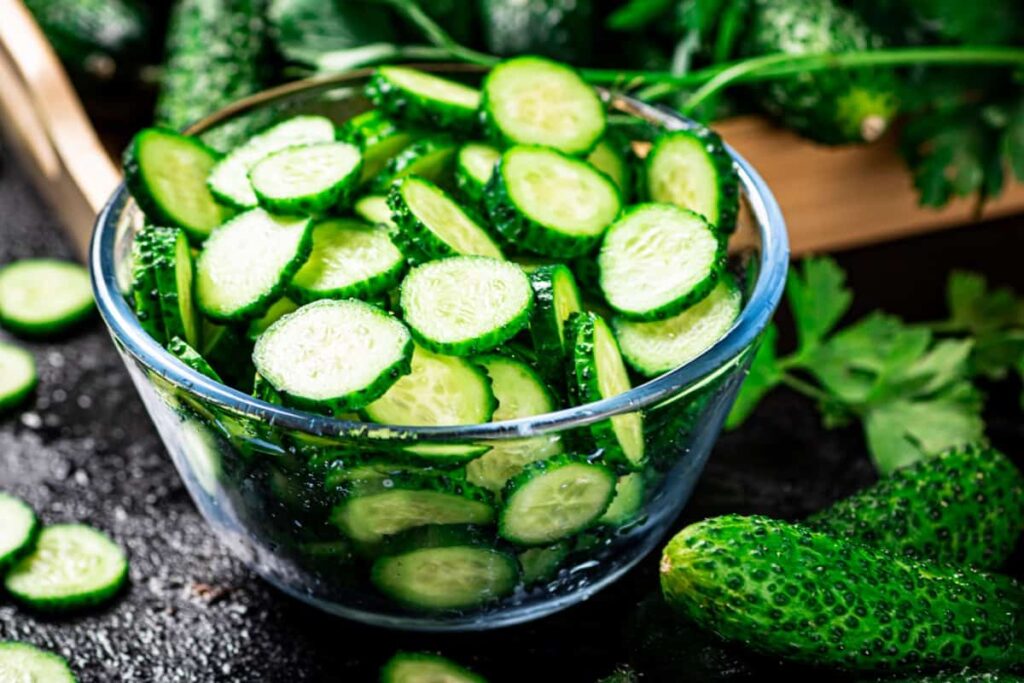
Conclusion
Cucumbers are a multipurpose vegetable that can be enjoyed in various ways, but there’s something special about Pickling them. The tangy, crunchy goodness of pickled Cucumbers adds a delightful twist to any dish or snack. Whether you’re a seasoned pickle enthusiast or just getting started, choosing the right Cucumber for Pickling is essential.
- Management Pests and Diseases in Your Cotton Field
- Sheep Farming Business Plan for Beginners
- Aquaponic Farming at Home: A Step-By-Step Guide
- Profitable Village Farming Business Ideas in 2024
- High-Yield Aquaculture: Fast-Growing Fish for Farming
- Effective Fish Pond Construction Techniques for Beginners
- Irrigation and Water Management in Pineapple Farming
- Blossom to Harvest: Mastering Flowering and Pollination in Papaya Farming
- Pig Fattening Essentials: From Selection to Sale for Beginners
- Raising Wagyu Cattle: A Complete Guide for Premium Beef Production
- Soil Types and Their Water Holding Capacity
- Optimizing Irrigation Schedules for Coconut Groves for Enhanced Yield
- Espresso Your Garden: Coffee Grounds for Healthier Acid-Loving Plants
- The Best Soil Mix for Snake Plants: How to Mix Your Own Snake Plant Soil
- Green Thumb Success: Expert Tips for Cultivating Greenhouse Beans All Year Round
- Bloom All Year Round: The Ultimate Guide to Indoor Hyacinth Care
- Eco-Friendly Gardening: How to Make Liquid Fertilizer from Kitchen Waste
- Ultimate Guide to Grow Anise in Pots: Explore Seed Propagation to Harvesting
- Guide to Raising Chester White Pigs: Discover Breed Facts to Growth Management
- Mastering the Elegance: The Ultimate Guide to Weeping Cherry Tree Care, Planting, and Maintenance
- Ultimate Guide to Planting Garlic in Grow Bags: Growing Strategies for Beginners
- How to Fix Spider Plant Leaf-Related Problems: Natural and Organic Remedies
- 10 Reasons Why Your Tulsi Plant is Shedding Leaves: Home Remedies and Solutions
- Optimizing Growth and Yield: The Advantages of Palm Bunch Ash Fertilizer
- Utilizing Neem Oil Extract as a Natural Pesticide for Hydrangea
- From Soil to Harvest: Various Ways in Which Farmers Can Use AI Tools
- Steps to Encourage and Induce Citrus Flowers: A Comprehensive Guide
- How to Fix Snake Plant Leaf-Related Issues: Natural and Organic Remedies
- Transform Your Garden into a Fragrant Oasis with Raat Ki Rani (Night Blooming Jasmine)
- Discover the Ideal Chicken Breeds for Philippine Farms
- How to Create a Poultry Egg Farm Business Plan for Profits
- Grow Lemon Cucumbers Like a Pro: Insider Techniques for Bountiful Yields
- Ultimate Guide to Caring for Your Pink Princess Philodendron: Tips for Thriving Variegation
- Areca Nut Profit Per Acre: Calculating Yield and Cost of Cultivation
- How Kaveri Chicken is Becoming a More Profitable Breed in Indian Backyards
- Transform Your Barn: 9 Steps to Convert a Horse Stall into a Chicken Coop
